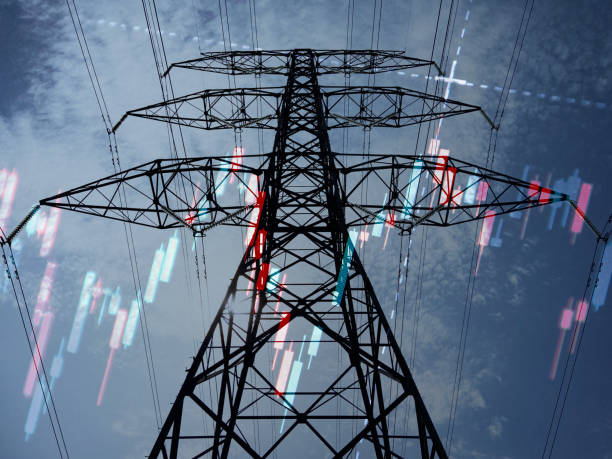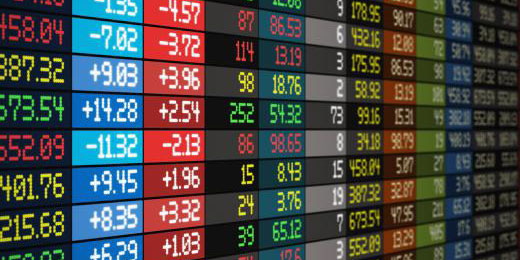The electricity trading market is a complex and fascinating world, where fortunes can be made or lost in the blink of an eye. In this blog post, we will give you a basic introduction to the concepts behind this exciting industry, and show you how to get started trading electricity yourself. Whether you are a seasoned pro or a complete beginner, there is something for everyone in the electric trading world!
What is electricity trading and how does it work

Electricity trading is the buying and selling of electricity, typically through a grid system or an exchange platform. It involves producers, such as power generators and utilities, who sell electricity to consumers, such as households and businesses. The price of electricity can fluctuate depending on demand for it, supply levels in the market, weather conditions, government regulations, and various other factors.
Traders in the electricity market can buy and sell power on a short-term basis as either a producer or seller of electricity, typically through bidding and auctions. Longer-term contracts are common to cover longer time periods, such as seasons or years.
Electricity traders use market data analysis to gain insights into the market and determine their buying and selling strategies. Price forecasting, hedging, and risk management are some of the tools used by traders to navigate the electricity markets.
Electricity trading is an important part of the energy industry, providing price transparency for buyers and sellers in order to help ensure a fair and efficient market. By understanding how it works, you can make informed decisions about your electricity consumption and benefit from the competitive energy market.
Benefits of electricity trading

Electricity trading is becoming an increasingly popular way for businesses to source energy. By relying on electricity traders, companies can benefit from competitive prices, access to renewable energy sources, and the ability to manage their power supply in a more efficient manner.
Additionally, by utilizing the services of electricity traders, businesses can reduce their risk exposure due to fluctuations in energy prices.
Electricity trading also provides an opportunity to improve energy efficiency, as well as provide access to renewable energy sources. This not only helps businesses reduce their environmental impact, but it can also help them reduce their energy costs in the long run. By working with an electricity trader, businesses can ensure they are getting the best deal when it comes to their energy needs.
In addition, electricity trading can help businesses increase their profitability by taking advantage of price differentials between different markets. This allows companies to hedge their risk, as well as gain access to advantageous prices that are not available in their local markets. As a result, businesses can capitalize on arbitrage opportunities and generate additional revenue.
Finally, electricity trading can also provide businesses with greater flexibility in terms of their energy needs. By relying on an electricity trader, businesses can have access to a wide range of sources and suppliers, as well as the ability to adjust their power requirements according to market conditions. This allows companies to manage their power supply more efficiently and effectively.
How to get started in the world of electricity trading
The world of electricity trading is a rapidly growing sector, with a huge number of opportunities for both professionals and individuals. Electric power generation, transmission, distribution, and trading are all facets of the modern energy market that can provide profitable and secure investments for those willing to invest their time and money into them. As such, it’s important to learn the fundamentals of electricity trading before taking the plunge into this dynamic sector.
The first step in getting started with electricity trading is to understand how electric power works and its various components. Study up on topics such as electricity generation, transmission, distribution, storage, and pricing. It’s also important to familiarize yourself with basic concepts such as peak and off-peak usage, energy efficiency, power factor correction, and contract terms.
Top five things you need to know about electricity trading
Electricity trading is the process of buying and selling electricity in the open market. It has become an increasingly popular way to manage energy costs, especially for large businesses and organizations that require a significant amount of power. With electricity prices continuing to rise, understanding how the market works – and what you need to know – is essential if you want to make the most of your electricity trading.
Here are the top five things you need to know about electricity trading:
Introduction to the World of Electricity Trading
The first step in understanding electricity trading is to become familiar with the different terms and processes involved. From wholesale markets and day-ahead auctions to balancing energy supply and demand, understanding the basics of electricity trading is essential to building an effective strategy.
Timing
One of the most important aspects of electricity trading is timing. Knowing when to buy and when to sell can make a huge difference in your bottom line, so it’s important to stay aware of market trends and pay attention to any news that might affect prices.
Understanding the Risks
There are always risks associated with trading in any market, and electricity trading is no exception. From fluctuating demand to weather-related events, it’s important to understand how these risks may affect your strategy and adjust accordingly.
Hedging Strategies
Hedging is one way to manage risk in the electricity trading market. It is a form of insurance that allows you to lock in prices and protect yourself against price fluctuations.
Market Regulations
Lastly, it’s important to have an understanding of the laws and regulations regarding electricity trading. Different countries have different rules and regulations governing these markets, so it’s important to stay up-to-date on any changes.
By understanding the basics of electricity trading, you can make better decisions and have more control over your energy costs. With proper research and preparation, you can be sure to maximize your profits while minimizing risk.
Electricity trading tips for beginners
The electric power industry is a complex and dynamic market, with prices and demand constantly fluctuating. As such, it can be quite challenging for newcomers to break into the world of electricity trading. To help those just starting out, here are some key tips for success:
Stay up to date on current market trends
Keeping abreast of news and updates in the electricity trading industry is essential for success. Make sure to monitor the latest updates to ensure you stay informed about changes and take advantage of price fluctuations.
Investigate different strategies
Electricity trading can be done through a variety of methods, such as spot markets, futures contracts, or options. Take time to research and understand these strategies before committing to a single one.
Monitor prices closely
Monitoring prices is an important part of successful electricity trading. By tracking the price movements of different electric markets over time, you can gain insights into which trading strategies may work best for you.
Utilize technology
Technology can be a powerful tool in the world of electricity trading. Utilize software and platforms to monitor prices, calculate profits and losses, automate transactions, and more.
FAQs
What is electricity trading?
Electricity trading is the buying and selling of electric power in different markets. It involves both wholesale and retail transactions, with large businesses and organizations often engaging in long-term contracts to secure their energy needs.
How do I start trading electricity?
To begin trading electricity, you must first understand the basics of the industry and the different trading strategies. Make sure to conduct research, understand the risks involved, and practice with a demo account before committing real money. Additionally, it is important to stay up-to-date on market trends, regulations, and technological advancements.
What are some tips for successful electricity trading?
Successful electricity trading requires staying up to date on market trends, investing in various strategies, and utilizing technology. Additionally, monitoring prices over time and gaining insights into which strategies may work best can also help you maximize profits while minimizing risk.
Conclusion
I hope this guide has provided you with a better understanding of the world of electricity trading. With proper research, preparation, and a willingness to learn, you can be well on your way to success.




